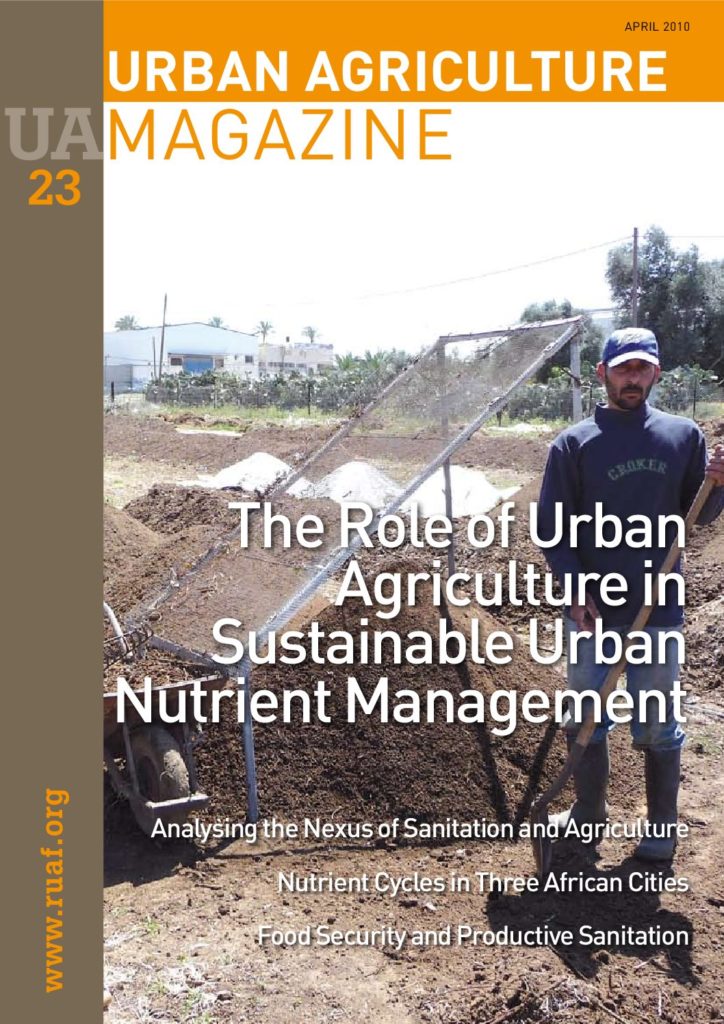This Urban Agriculture Magazine looks at options for closing the nutrient loop through safe recycling of urban wastes, and argues that urban agriculture can play an important role in sustainable urban nutrient management.
Urban agriculture is a response to the increase in demand for food and the market proximity in cities. This way of producing food is highly dependent on available space, nutrients and water. While access to space and water largely depends on local conditions, farmers commonly use different organic and inorganic nutrient sources.
Also available in Spanish, Portuguese, French and Arabic.
Contents:
- Closing the Rural-Urban Food and Nutrient Loops in West Africa: a reality check
- Analysing the Nexus of Sanitation and Agriculture at Municipal Scale
- Closing the Phosphorus Loop in Hanoi, Vietnam
- Assessing Patterns of Nitrogen Management in Periurban Agriculture of Hanoi, Vietnam
- Nutrient Cycles in Three African Cities
- Decentralised Composting of Market Waste and Use in Conakry, Guinea
- The Productive Garden: An experience in the city of Belo Horizonte, Brazil
- Improving Food Security through Environmental Management in Ibadan
- Municipal Solid Waste Management as an Incentive for City Farming in Pune, India
- Commercial Substrates for Urban Agriculture in Bogotá
- Using Participatory Urban Design to “Close the Nutrient Loop” in the Philippines
- Using Urban Organic Waste as a Source of Nutrients, the need of awareness raising
- No Place Like Home: Gender and Capacity Development in Master Composting Programmes
- Producing Organic Fertiliser from Urine-Diverting Dry Toilets in Dongsheng, China
- The Role of Urban Agriculture in Waste Management in Mexico City
- Energy Balance in a Suburban Chinampa Agroecosystem in Mexico City
- Food Security and Productive Sanitation: Practical guideline on the use of urine in crop production
- The Emerging Market of Treated Human Excreta in Ouagadougou
- Introducing Urine as an Alternative Fertiliser Source: Case studies from Nigeria and Ghana

